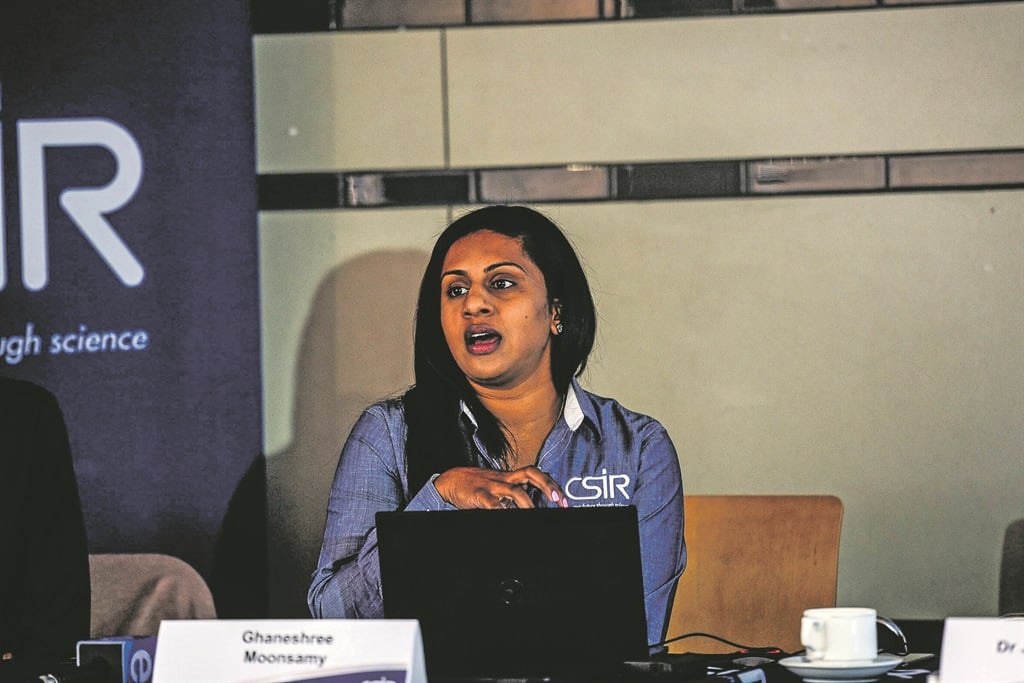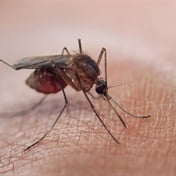
Using nanotechnology to create a Breathalyser that can detect and monitor diabetes; creating probiotics for the production of chemical-free broiler chickens that are consumed by millions; and stem cells that can be recreated into brain and liver cells.
This may sound like science fiction to many, but for four female research scientists at the Council for Scientific and Industrial Research (CSIR), this pioneering work that they are leading could change the face of South Africa’s healthcare system.
The ground-breaking work by emerging researcher Valentine Saasa and senior researcher Ghaneshree Moonsamy was among that highlighted by the council last week to coincide with the end of Women’s Month.
For Saasa, working on a monitoring and detection solution for diabetes to replace the current invasive and uncomfortable “finger pick” glucometer could spell the end of an era of painful pricks and costly testing strips.
“We have about 382 million people worldwide affected by diabetes and 46% who aren’t diagnosed, so the figures could be higher. In Africa, we have about 20 million people diagnosed and many more undiagnosed. Diabetes mellitus is mainly about managing and monitoring, so we focused on monitoring because it’s an important factor in knowing one’s blood sugar levels,” Saasa explained.
Diabetes is a chronic metabolic disorder resulting from insulin deficiency. Insulin is a hormone that regulates and converts consumed food into usable energy for the body.
Saasa and her team turned their attention to human breath and a molecule called acetone.
“If you are diabetic, you have high blood sugar levels and also high acetone levels. How acetone is produced in human breath is that when you don’t have insulin in your body, your brain and muscles still need that energy insulin provides.
“So the body breaks down fatty acids to compensate for the tissues that need energy. So we’re targeting this acetone to replace the current way we monitor blood glucose levels as it is a marker for diabetes,” she said.
But it’s not just diabetes that can be monitored by this Breathalyser. Human breath, Saasa said, can be used to detect molecules such as methylated hydrocarbons, which can detect lung cancer.
Granted, Saasa and her team aren’t the first to use breath as a diagnostic and monitoring tool for diseases, but the current proposed instruments so far are bulky, require trained operators, are expensive and a patient can’t easily move around with them.
Saasa said they were working to get their device to the size of the normal breathalyser that detects alcohol levels, should an interested manufacturer provide the funding for further modifications.
One would still use it three times a day, but it would prove cheaper than the current finger test as it would be a one-off purchase for five years.
For Moonsamy, the country’s significant need for chicken as a source of protein – because it is cheaper and widely consumed – launched their investigation into animal health and how it could in turn affect human health by virtue of the environments in which these animals are produced.
She and her team also looked at what safer modifications could be made in the feed for chicken broilers to lessen the use of artificial chemicals.
“The facilities chickens are produced at usually have issues with overcrowding. There is also excessive use of artificial growth promoters (AGPs), which means that chemical compounds are injected into these chickens to make them gain weight so that they have a higher growth mass at the end of their 35-day growth cycle,” she explained.
And because the production facilities are so overcrowded, Moonsamy said the chickens sometimes suffered heat stress, which led to their underutilisation of feed and the need for the AGPs.
“Probiotics [live microorganisms that confer health benefits to the host] can help address these challenges. A farmer’s biggest expense is feed – and if the chickens are under heat stress, they underutilise the feed,” she said.
“But probiotics in the feed help chickens digest their food better without the need to use chemicals and artificial enhancers. It also decreases their mortality and increases their resistance to disease.
“Consumers are demanding naturally produced animal products, free of antibiotics, chemicals and growth stimulants. And a key opportunity lies in developing probiotics for the production of both commodity and speciality foods.”




 Publications
Publications
 Partners
Partners








